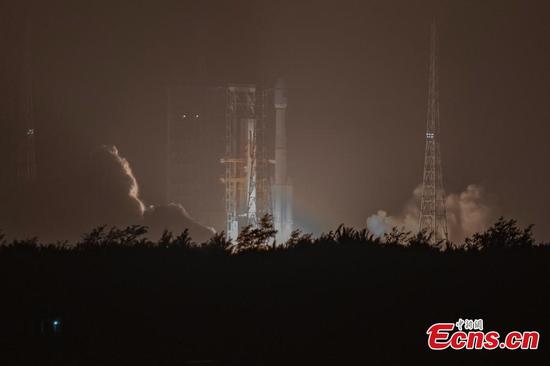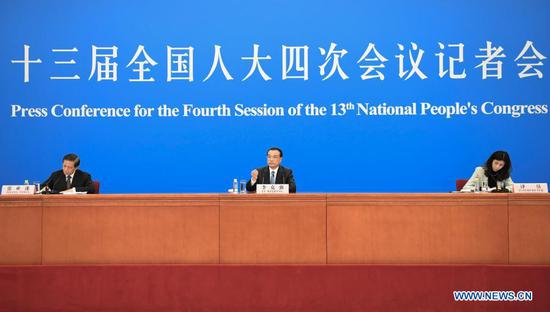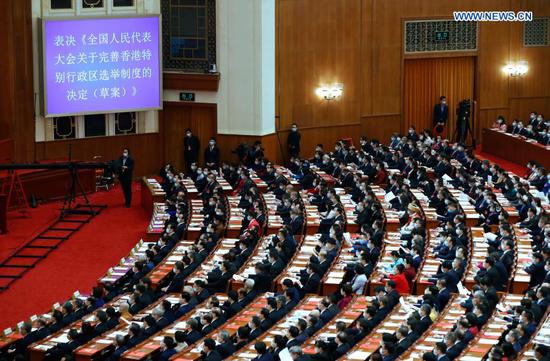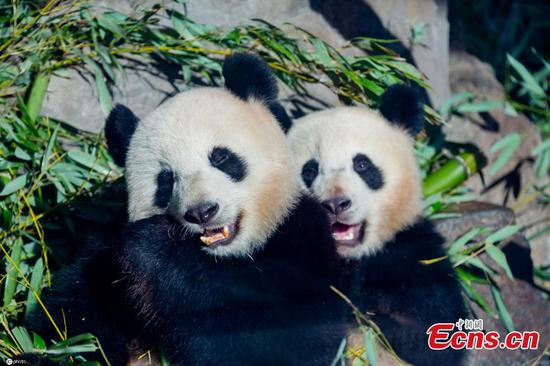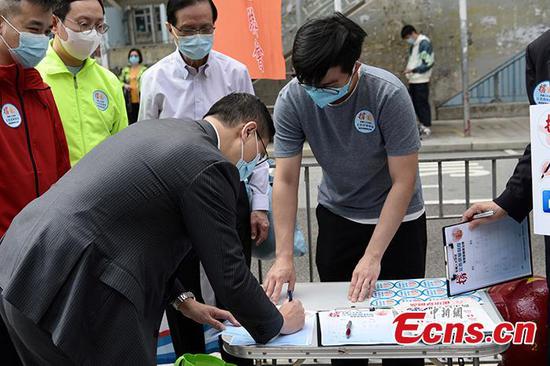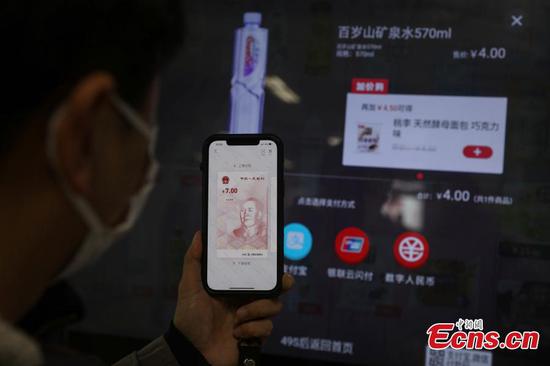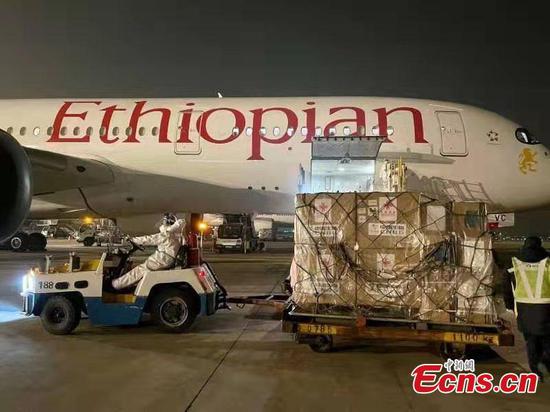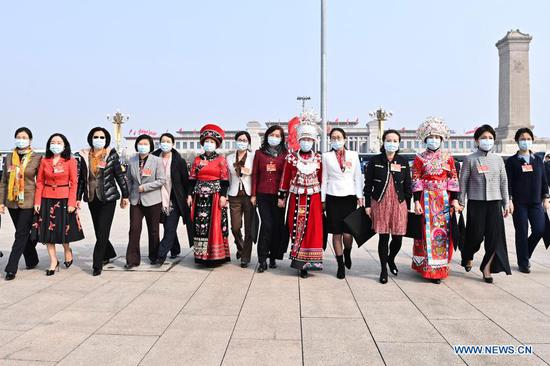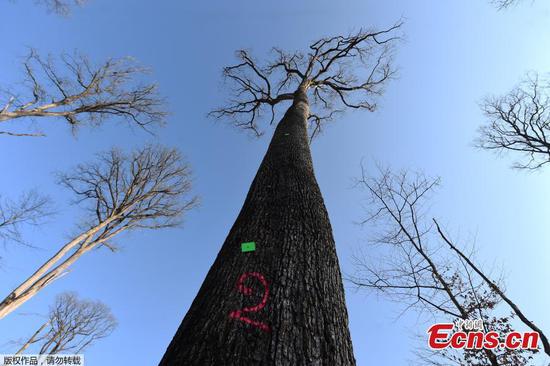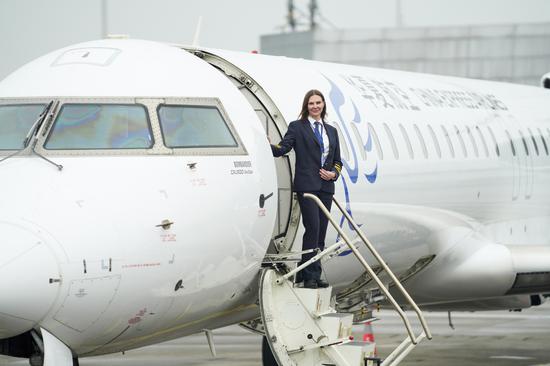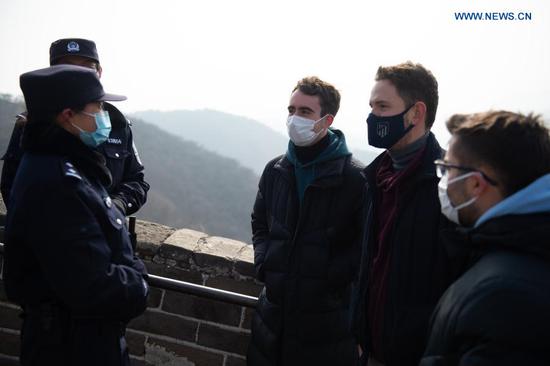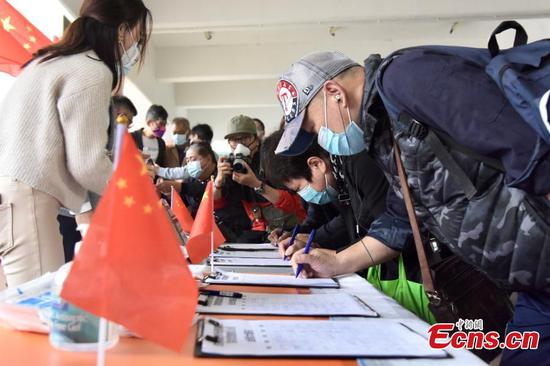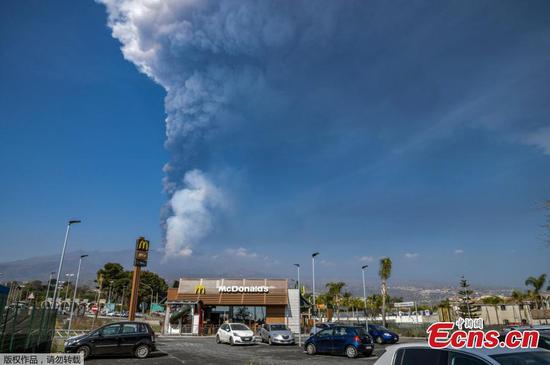
Premier Li Keqiang walks into a meeting room to begin the annual news conference as journalists wait to raise questions via a video link in Beijing on Thursday. (KUANG LINHUA/CHINA DAILY)
Premier Li Keqiang called on Thursday for China and the United States to carry out dialogue in multiple areas and at various levels to dispel misunderstandings and help manage and mitigate differences.
Even though the two countries cannot work everything out anytime soon, Beijing and Washington could exchange their opinions and enhance mutual trust through dialogue, Li told reporters after the conclusion of the fourth session of the 13th National People's Congress, China's top legislature.
The two sides should focus on their common ground and expand converging interests, Li said.
China and the U.S., as the world's largest developing and developed countries, respectively, both stand to gain from cooperation and lose from confrontation, he said.
China hopes the two countries will respect each other's interests and major concerns, refrain from interfering in each other's internal affairs and strive for sustained and healthy development of bilateral relations, he said.
"We hope that the China-U.S. relationship will be future-oriented, overcome obstacles and move in a positive direction," Li said.
His remarks came as senior officials from the two nations are set to hold a high-level strategic dialogue in Anchorage, Alaska, next week.
The two-day meeting will be attended by Yang Jiechi, a member of the Political Bureau of the Communist Party of China Central Committee and director of the Office of the Foreign Affairs Commission of the CPC Central Committee, State Councilor and Foreign Minister Wang Yi, U.S. Secretary of State Antony Blinken and U.S. National Security Advisor Jake Sullivan.
This will be the first high-level, face-to-face diplomatic contact between the two countries since U.S. President Joe Biden took office in January.
Foreign Ministry spokesman Zhao Lijian said in a statement on Thursday that China asks the U.S. to view the country and bilateral relations in an objective and rational manner, and abandon a Cold War mentality and zero-sum game mindset.
The announcement of the meeting came exactly a month after a telephone conversation between President Xi Jinping and Biden.
During that phone call, Xi said China and the U.S. should reestablish the various dialogue mechanisms in a bid to read each other's policy intentions accurately, adding that the foreign affairs departments of the two countries may have in-depth communications on wide-ranging matters.
Blinken, who talked with Yang on Feb 6 by phone, said on Wednesday that the meeting would be "an important opportunity for us to lay out in very frank terms the many concerns" with Beijing.
The timing of the meeting "at a mutually convenient but U.S. territory-based site" shows the "seriousness about substance with China", said Douglas H. Paal, a senior researcher of the Asia Program at the Carnegie Endowment for International Peace.
"There might be a small substantive surprise," Paal said, adding that the basic result could be a mutual airing of concerns and red lines.
Yang Xiyu, a senior research fellow at the China Institute of International Studies, told the Global Times that Alaska is a suitable venue for an attempt by China and the U.S. to cautiously make the initial step to reset ties.
"Alaska and Hawaii are less politically sensitive. When China and the U.S. opened direct flights, the planes had to stop at Anchorage to refuel due to technology restrictions. So this city has special significance in the history of China-U.S. relations," Yang Xiyu noted.
Li Haidong, a professor of U.S. studies at China Foreign Affairs University, said that the high-level strategic dialogue is likely to become a fixed dialogue mechanism between China and the U.S. in the next four years.
The two countries are expected to focus more on the results and carry out more small-scale and high-level dialogues for decision-makers to extend policies in order to avoid miscalculation, he added.
During the previous U.S. administration, China-U.S. relations plunged to the lowest point since the two countries forged diplomatic relations in 1979.
With the onset of the Biden administration, expectations have been running high among diplomatic, business and academic communities for a reset of the relationship.
A survey released on Tuesday by the American Chamber of Commerce found that U.S. businesses in China are profoundly positive about doing business in 2021 and expect ties between Beijing and Washington to improve.
The survey found that 81 percent of the 345 respondents see their industries in China growing in 2021, while 45 percent see relations with the United States improving, up by 15 percentage points from last year.










